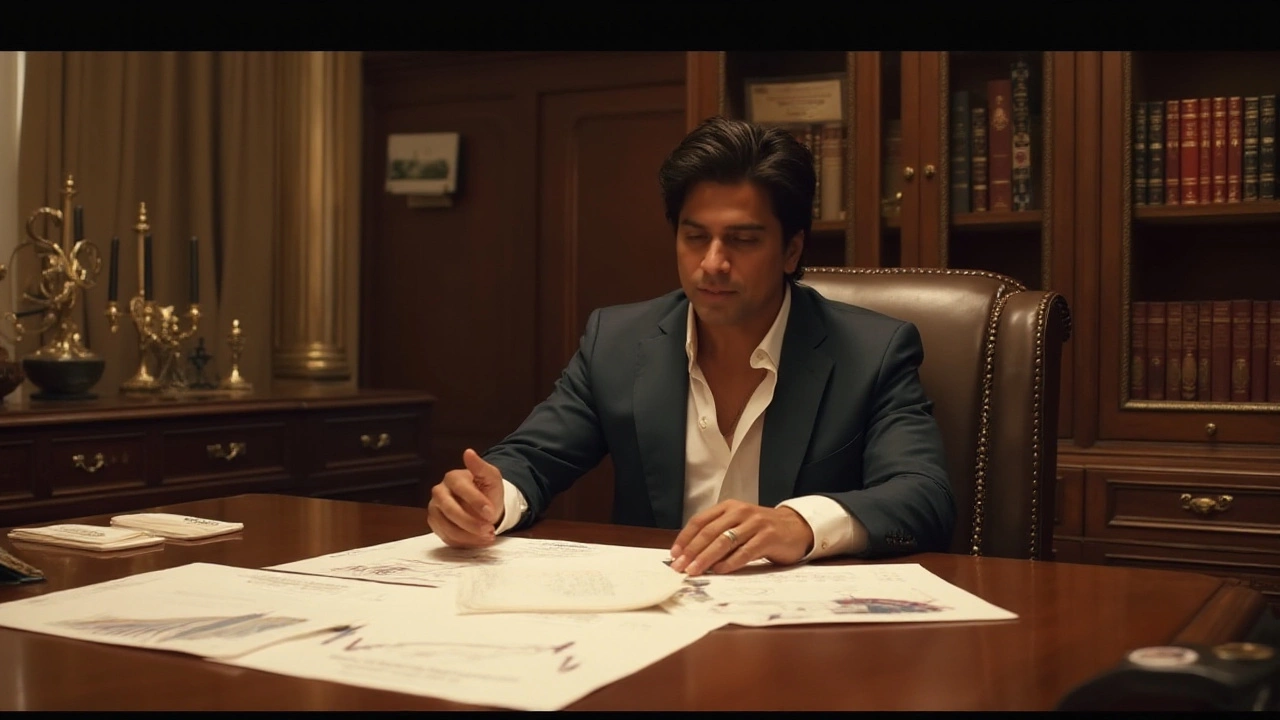
Shahrukh Khan is a name that resonates not just with Bollywood lovers but with anyone who appreciates cinema. Over the decades, he has astutely curated his career, balancing blockbusters with meaningful cinema. But what happens when the lure of box office success and financial incentives takes precedence over cinematic ambition?
There are whispers in the industry and beyond suggesting he has occasionally chosen projects for their lucrative offerings rather than their intellectual or creative challenge. While this is not uncommon in the film industry, understanding what draws such a prominent actor to make these choices is fascinating.
This article breaks down how factors such as audience demand and financial pressures can shape the decision-making process, leading even a superstar like Shahrukh to occasionally prioritize monetary gain. It examines the thin line actors often walk between passion and profitability, offering a nuanced view of why 'King Khan' occasionally lets commerce steer his choices.
- Shahrukh Khan's Filmography and Box Office Strategy
- The Impact of Market Trends on Movie Choices
- Instances of Financially Motivated Film Selections
- Balancing Art and Commerce in Bollywood
Shahrukh Khan's Filmography and Box Office Strategy
Shahrukh Khan, often referred to as the 'King of Bollywood', has built an impressive filmography that spans over three decades. His journey from a television actor to the megastar we know today is a testament to his talent, perseverance, and astute understanding of the movie industry. With over 80 films under his belt, Shahrukh has mastered the art of mixing genres, from romantic dramas like "Dilwale Dulhania Le Jayenge" and "Kabhi Khushi Kabhie Gham" to thrillers such as "Baazigar" and "Don". The diversity in his choices has not only captivated audiences worldwide but also established him as a versatile actor capable of taking on a myriad of roles. However, what truly sets him apart is his box office strategy.
In the entertainment business, star power often translates into box office success, and Shahrukh Khan is a prime example. By capitalizing on his universal appeal, he has consistently drawn audiences to theatres, boosting film revenues across different markets. A key aspect of his strategy is aligning with directors and producers who share his vision. Collaborations with renowned filmmakers like Karan Johar, Yash Chopra, and Farah Khan have resulted in massive hits that have redefined industry standards. Moreover, Shahrukh's business acumen extends beyond acting; his production company, Red Chillies Entertainment, plays a pivotal role in the industry's evolution, backing bold and innovative projects that might not follow conventional Bollywood molds.
Shahrukh Khan is known for not only his choice of films but also his marketing genius. Each of his movies is accompanied by a well-thought-out promotional campaign that ensures maximum visibility and reach. Not merely relying on his star power, he uses social media platforms and international tours to engage with fans and create anticipation. An example is how he transformed the film "Ra.One" into an event, with video games, merchandise, and a music album that soared to the top of the charts. When discussing his philosophy of movie making and choosing films, he eloquently said,
"I have always believed in doing what makes me happy, and that, in a way, is the biggest box office strategy, because when you give happiness, you get happiness back."
No examination of Shahrukh Khan's film strategy would be complete without addressing his response to market trends. Over the years, he has adeptly adapted to an ever-changing industry, understanding when to experiment with offbeat roles or when to stick to trusted archetypes. For instance, while "Chennai Express" was a nod to the masala films of yore with its humor-laden action, "Dear Zindagi" showcased a softer, more introspective side of the superstar. The insights provided by market data and audience feedback shape these decisions, ensuring that his films remain relevant and in touch with viewers' expectations.
Finally, Shahrukh Khan understands the power of nostalgia. By revisiting iconic characters and narratives, as seen with sequels like "Don 2", he connects with audiences who have grown up with his movies. This connection extends beyond cinema, with merchandise, music, and digital platforms playing a critical role in keeping his charisma alive for future generations. The sustained adoration for Shahrukh Khan isn't just due to his acting skill but his razor-sharp Bollywood strategy, which amalgamates entertainment with business foresight, offering a blueprint for future aspirants in the film industry.
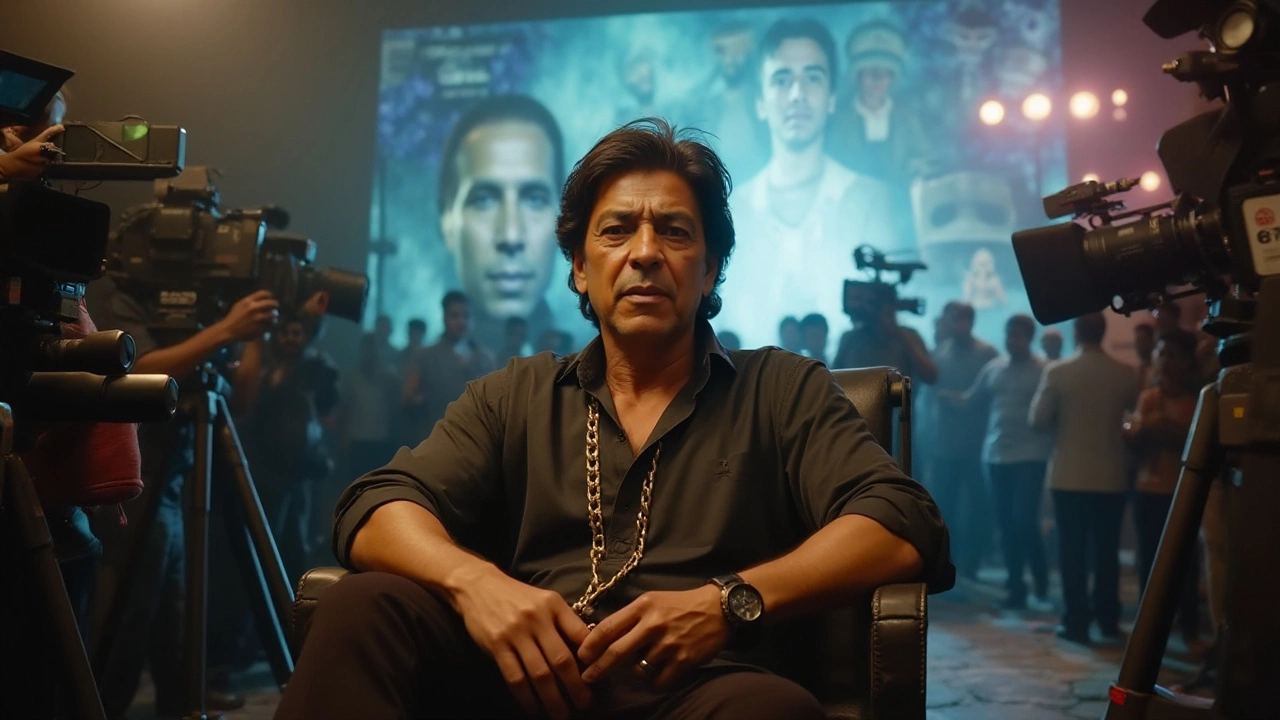
The Impact of Market Trends on Movie Choices
In the dynamic world of Bollywood, market trends act as an invisible hand guiding the decision-making processes of filmmakers and stars alike. At the center of this is Shahrukh Khan, whose career decisions often reflect the changing tides of audience preferences and box office potential. Like any industry, cinema is highly influenced by consumer behavior, and actors frequently adapt to these changes to remain relevant. Stars like Khan, who has been on the zenith of Bollywood for decades, continuously recalibrate their choices to align with audience expectations and the financial landscape.
In recent years, a significant shift has been observed in the types of films that garner attention. For instance, there’s been a surge in interest toward socially relevant narratives and content-driven cinema. However, big-budget spectacles and franchise films, often loaded with special effects and star-studded casts, continue to dominate the box office. This dual trend presents both a challenge and an opportunity for actors. Balancing between critically acclaimed roles and box office juggernauts becomes a strategic maneuver. Shahrukh Khan, known for his romantic hero image, has diversified his filmography over time, venturing into niche drama, suspense thrillers, and even collaborating with innovative filmmakers to adapt to these trends.
An illustrative example can be seen in Khan’s choice to star in 'Ra.One' and 'Chennai Express.' Made at a time when the industry was veering towards high-concept, technologically rich storytelling, 'Ra.One' reflected the growing demand for superhero themes. Although not universally acclaimed, the film’s visual effects represented technological ambition mirroring the global superhero film craze. Conversely, 'Chennai Express,' designed as a go-to family entertainer, was perfectly timed to cash in on the holiday season, riding the wave of nostalgic cinematic tropes and cultural motifs that audiences craved. Such decisions are not taken lightly, illustrating how market trends can significantly sway an actor’s career trajectory.
If there is one lesson that history has repeatedly taught, it’s that "cinema is a reflection of society," and the best films manage to capture the zeitgeist of their time. - Film Analyst Rajeev Masand
Another important aspect to consider is how these trends inform the marketing and promotion strategies surrounding a film. As the cinematic landscape evolves, traditional marketing is complemented by aggressive digital campaigns. The advent of OTT platforms has also redefined what success looks like in the industry. Films that might not have been commercial hits in theaters find a second life online. Shahrukh Khan, ever the astute marketer, often embraces these platforms to ensure his films maintain a long-tail success. The blend of social media buzz, trailer teasers, and promotional tours play into how movies are received, with market trends heavily dictating each step.
To quantitatively analyze this influence, data can offer insightful revelations. Consider the table below illustrating Shahrukh Khan’s movies over a five-year span in comparison to industry trends.
| Year | Film | Industry Trend | Outcome |
|---|---|---|---|
| 2011 | Ra.One | Superhero/Tech-savvy Cinema | Moderate Box Office, Groundbreaking VFX |
| 2013 | Chennai Express | Family Entertainers/Festival Release | Blockbuster Success |
The evidence is clear; market trends play a crucial role in influencing film choices. Stars like Shahrukh Khan must keep their finger on the pulse of these trends, often leading them to make decisions which may prioritize financial considerations. It's a delicate dance of art meeting commerce, where both have to coexist for sustained success in the ever-evolving Bollywood landscape.
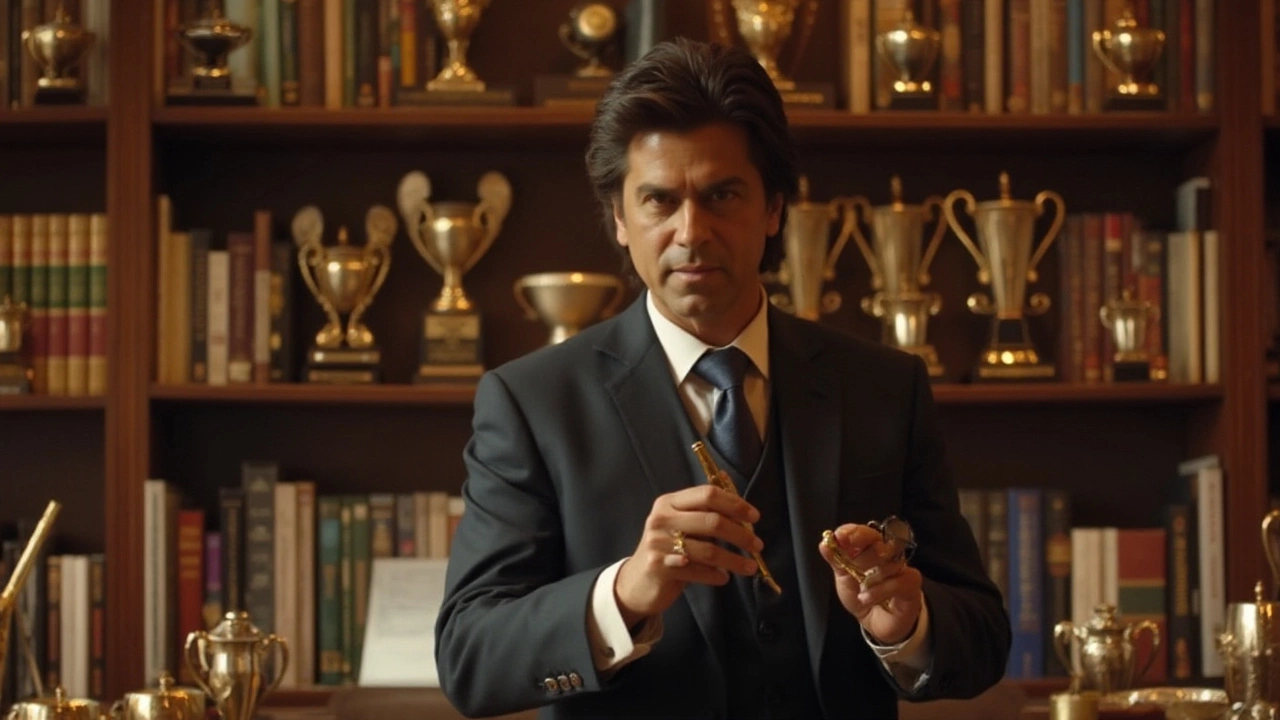
Instances of Financially Motivated Film Selections
In the glittering world of Bollywood, every project has a story behind it, and some of these stories revolve around financial motivations. Shahrukh Khan, a stalwart in the industry who has given his audience countless unforgettable performances, is no stranger to making decisions influenced by financial prospects. One such example is the film Happy New Year, released in 2014. The film, directed by Farah Khan, was a heist comedy with a stellar ensemble cast, including the likes of Deepika Padukone and Abhishek Bachchan. Primarily a masala entertainer, it banked heavily on Shahrukh's star power to draw in massive crowds to the theaters. It was not just the script that lured Shahrukh; the commercial potential and the opportunity to be involved in a multi-starrer spectacle played a crucial role. The movie grossed over 400 crores globally, cementing its status as a financial success despite mixed critical reviews.
Another instance demonstrating this trend is Shahrukh's involvement in the film Ra.One, released in 2011. This was an ambitious project with high stakes, aimed at pioneering the superhero genre in Bollywood. Shahrukh not only acted as the lead but also produced it. Bollywood at the time sought new cinematic experiences, and with significant views and bets on the rise of technological integration in movies, Ra.One was a calculated attempt to tap into this burgeoning segment. Although the film faced scrutiny for its storyline, the marketing investments and global partnerships it attracted were testimony to its financial allure.
In a candid moment during an interview with a leading film magazine, Shahrukh once mentioned,
"The industry is as much about the art as it is about making sensible business decisions. At times, commercial ventures pave the way for creative freedom."This insight reveals how strategic monetary gains can facilitate future artistic endeavors, creating a space where both can thrive. Films such as Chennai Express (2013) further exemplify his strategic foresight. The movie, laden with humor and action, catered especially to the festive audience and capitalized immensely on holiday box office returns, officially becoming one of the highest-grossing films that year.
The decision-making process isn’t just about the present; it also factors in future opportunities. Money earned from such ventures often funds smaller, riskier films that might not promise immediate returns. His choice to appear in Dilwale (2015), another Farah Khan collaboration, was similarly influenced. Featuring the iconic pairing of Shahrukh and Kajol, though critically average, it was undoubtedly a commercial fete. The film succeeded in international markets, which shows how financial decisions can align with global market expectations, broadening the reach of Bollywood films beyond simply local audiences.
To better understand these financially driven choices, it's crucial to consider the ecosystem of Bollywood itself. High competition and audience expectations mean actors must balance market demands with personal goals. In Shahrukh's case, his brand is multifaceted; he's a storyteller, a businessman, and a global ambassador of Indian cinema. Navigating such roles necessitates an occasional favoring of commerce to uphold and expand the brand, ensuring it resonates with diverse audiences. When analyzing films like Happy New Year or Ra.One, one can see a calculated effort to cater to public tastes while consolidating financial backing for future creative pursuits.
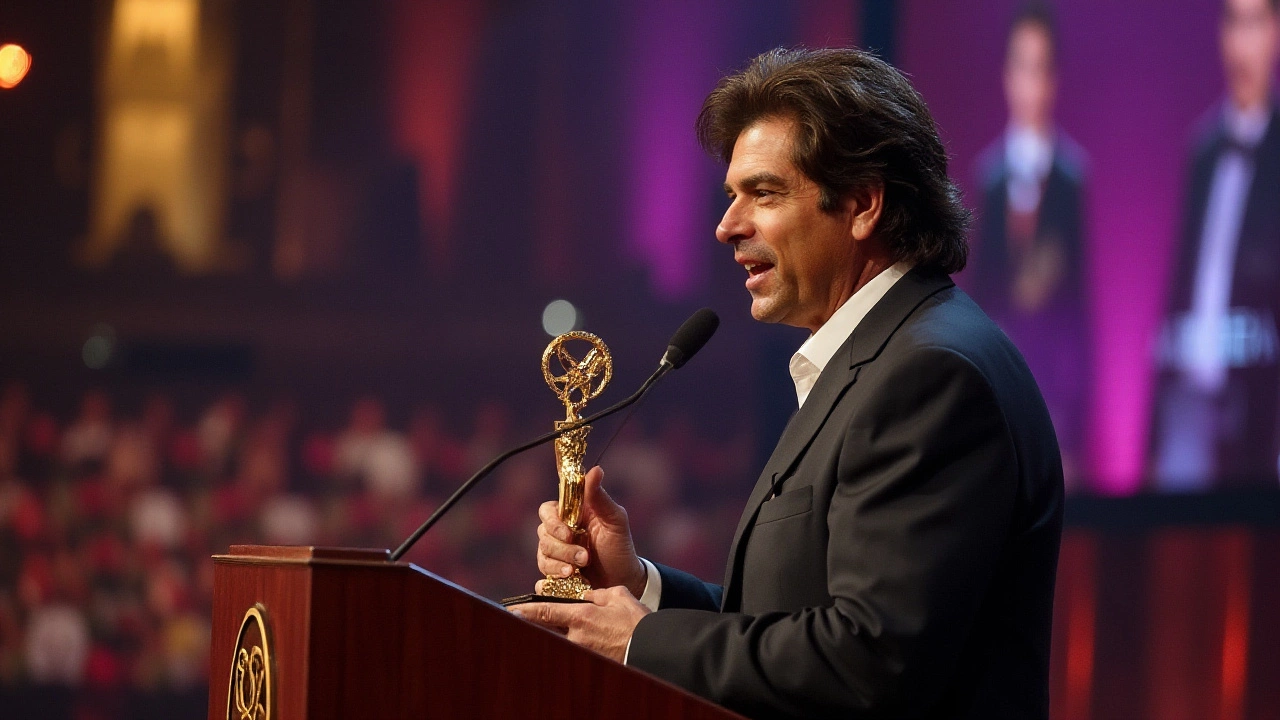
Balancing Art and Commerce in Bollywood
Finding the equilibrium between artistic expression and financial success is a constant challenge in Bollywood, particularly for titans like Shahrukh Khan. In the glitzy world of Indian cinema, where audience expectations and market trends are as unpredictable as a monsoon shower, actors often have to make strategic choices that sometimes veer away from their creative desires. Shahrukh, known for his versatility in genres ranging from romance to action, often finds himself at this junction. His choice of roles reflects a fascinating juggling act between crafting cinematic legacy and fortifying commercial appeal. Movies like "Chennai Express," which catered to mass appeal with its comedic feel, underscore the need to align with what is marketable while occasionally sidestepping the deeper, psychologically challenging scripts he is equally known for.
One of the predominant factors that influences the film choices of stars like Shahrukh Khan is the overarching box office landscape. The industry's infrastructure has evolved, with multiplexes demanding a quick turnover of audience views ensuring financial gain in short bursts. This shift requires megastars to sometimes opt for projects with instant appeal. However, Shahrukh deftly combines charisma and market acumen. With a fanbase that spans the globe, his films need to be financially successful to justify the immense budgets often required. This translates to a constant balancing act where even an actor of his caliber may deliver a masala entertainer monetarily driven, side by side with artistic ventures like "My Name Is Khan."
"I always believe that I do not have to choose between art and commerce; they can beautifully coexist." — Shahrukh Khan in an interview with Filmfare
Despite the commercial pressures, Shahrukh has not shied away from taking artistic risks. His portrayal in "Fan," a film that stepped away from the usual Bollywood tropes, highlighted his flexibility and openness to innovative storytelling. This passion for diversifying his filmography, juxtaposed with commercially driven collaborations, is precisely what keeps him at the forefront of the industry. This dichotomy can be illustrated through his production choices under Red Chillies Entertainment, which ensures he has a say in future-proofing his brand by pushing creative boundaries while ensuring box-office returns. It's a tightrope walk, yet Shahrukh navigates it with the expertise of a seasoned performer who realizes his responsibility to both his art and his financial stakeholders.
For Shahrukh Khan and similarly household names in the industry, success isn't just about box office numbers; it's about the legacy they leave behind. In a world where every release is dissected by millions of eager fans and critics, these actors leverage their influence and knowledge of Bollywood's intricacies. Mentoring upcoming directors or actors, choosing scripts that promise more than monetary triumph, and exploring diverse characters that challenge their existing narrative are the means through which Shahrukh maintains this balance. It's a testament to his inherent understanding of this duality that he remains not only relevant but revered. By blending artistic brilliance and savvy commercial insights, he continues to redefine what it means to be at the pinnacle of Bollywood.
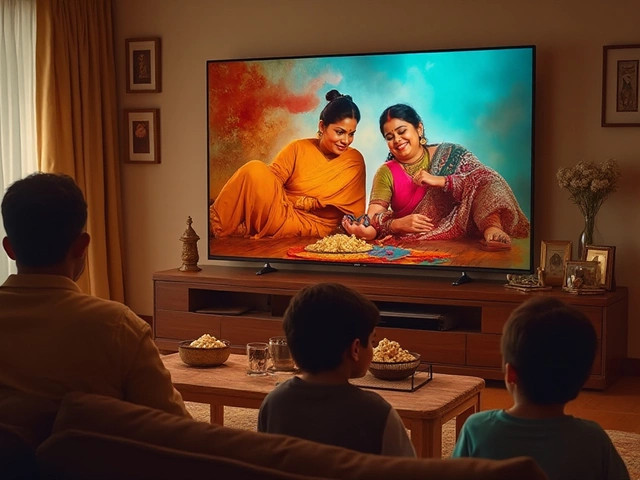

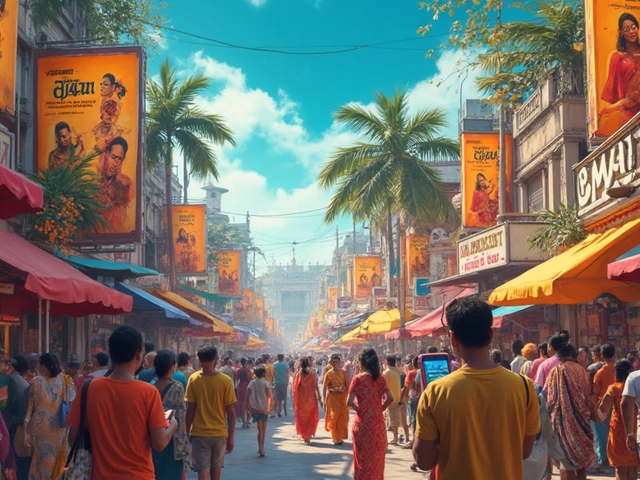
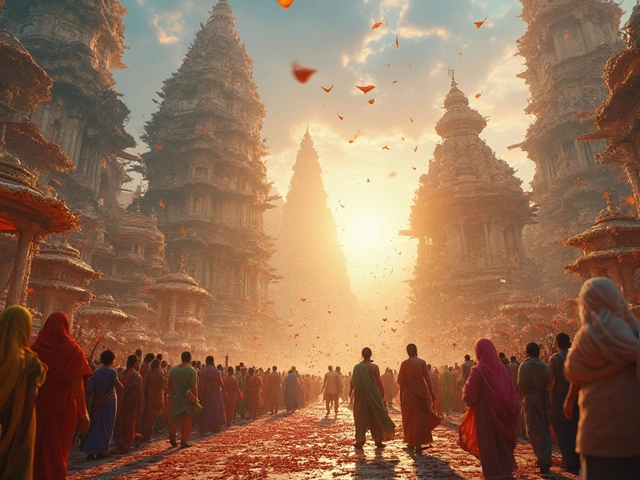
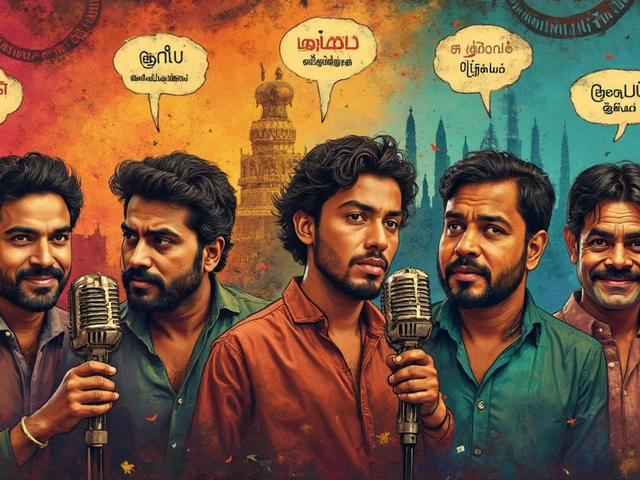
Write a comment